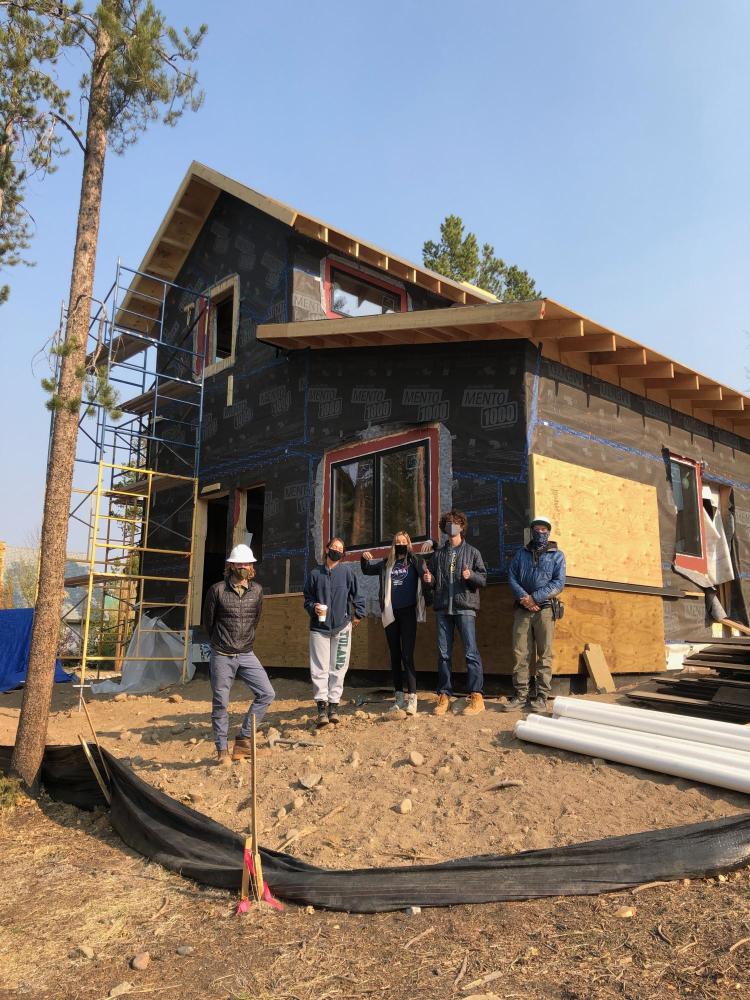Architectural engineering receives DOE Zero Energy Design Designation

CU Boulder’s architectural engineering Bachelor of Science degree program has earned a Zero Energy Design Designation from the U.S. Department of Energy.
The new DOE designation, awarded to 17 educational programs nationwide, recognizes the growing importance of zero-energy design, which means a building produces as much energy as it consumes in a year. The designation honors post-secondary academic programs that require students to apply the best practices of zero energy design in their projects.
Jennifer Scheib, an assistant teaching professor who led CU Boulder’s 2021 Solar Decathlon team to a first-place win, said the new designation recognizes the program’s longtime sustainability focus.
“It’s not just us saying we care about sustainability,” Scheib said. “A third party reviewed our curriculum and said, ‘Yes, this program is focused on sustainability.’ Not only are we an accredited engineering program, but sustainability is part of our course goals.”
The Zero Energy Design Designation Program supports the Biden-Harris Administration’s goal of a net-zero emissions economy by 2050. With buildings being one of the main contributors to carbon emissions, building professionals must be trained to design and construct high-efficiency, low-carbon buildings powered by renewables to achieve this goal, the DOE said. Today, 35 percent of the nation’s energy-related carbon dioxide emissions are attributed to buildings.
The program’s senior design capstone class, taught by Assistant Teaching Professor Jay Arehart, is at the core of the DOE designation, Scheib said. The senior capstone class gives all students — not just those able to participate in the Solar Decathlon build activity — the opportunity to learn about sustainability goals and design and modeling practices for buildings and to put those skills to use on a large design project. During the year-long course, fourth-year students design a zero-energy commercial building.
CU Boulder has participated five times in the DOE’s Solar Decathlon competition’s build program, winning first place in 2002, 2005, and 2021, and their involvement in the decathlon led to Scheib sending in the curriculum and meeting with DOE staff for consideration for the Zero Energy designation. During the collegiate competition, students design and build high-performance, low-carbon buildings that mitigate climate change and are affordable, resilient and energy efficient.
“Our students are our future,” Scheib said. “If they want a sustainable world for themselves and their children, they need to be aware of the amount of energy used in the built environment. We want to make sure they have those skills.”
Scheib added that zero-energy building is not only important for society, but also for the students’ pathway after graduation.
“It’s important for us to also let employers know that our students have those skills,” she said. “Employers want young people who know how to energy model.”


